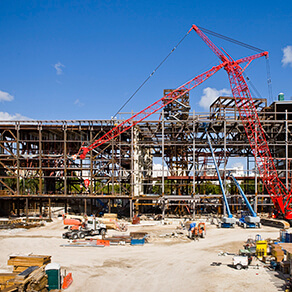
Prepare for Project Delays With Savvy Financial Strategies
Although construction activity tends to ramp up nationwide over the summer, that doesn’t mean everything goes as planned. A project that looks sunny on paper can turn into a hot mess if it experiences serious delays. Make sure you’re prepared.
The Usual Suspects
As you’ve likely experienced, various unforeseen events can bring a job to a grinding halt. One of the usual suspects is inclement weather. Mother Nature plays no favorites and cares not for a construction schedule. Document the number of days and the severity of adverse weather events. Meanwhile, keep your crew ready to regroup and redeploy as soon as conditions clear. Doing so will demonstrate that your company did nothing to exacerbate the delay.
Another usual suspect is a project owner running into financial issues. Owners or developers sometimes run out of money mid-project and must renegotiate financing or seek new funding sources. Meanwhile, no one gets paid. You can improve your chances of avoiding such situations by fully researching a job before submitting a bid.
Sometimes discord disrupts a project. You’ve probably worked on a job or two that wasn’t all sunshine and rainbows. Perhaps the owner disputed choices of materials or in what order certain tasks should be completed. Some owners communicate better than others; some are simply impatient. It’s for these predicaments that superior communication skills and a thorough knowledge of dispute-resolution methods are critical.
Risk Recognition
Whatever the cause of the delay, your construction company needs to be able to recognize and quantify its financial risk. Informally, one can define financial risk as the likelihood of negative possibilities — from being unable to meet your short-term obligations (payroll, accounts payable) to, at its most extreme, failure of the business.
Financial risk tends to proportionately increase as a construction-company owner panics or succumbs to reactionary measures. For example, if an owner’s payment is delayed, some contractors might decide to drag out performance because they’re not getting paid.
A smarter move is to recognize the short-term risk of liquidated damages as well as the longer-term risk of nonrenewal of awarded contracts. These dangers can lead to ongoing and potentially devastating cash-flow constrictions.
Protective Measures
No one can predict the future. If a construction company is always relying on its next payment to stay in business, one delayed project can spell disaster.
Many contractors turn to lines of credit to insure themselves against job delays and slow payments. But a line of credit is like a mortgage that never gets paid off, because interest is charged on the open balance. Even if you keep up with the payments, you’re still accruing interest. And interest charges will explode exponentially if you must repeatedly use the line to bail yourself out whenever an owner or general contractor doesn’t pay up.
For this reason, among others, you’ll be better served by prudent, proper financial management. This begins with what can be a big challenge for many contractors: creating and maintaining a cash reserve. A general rule of thumb says every small to midsize business should keep on hand enough cash to cover anywhere from three to six months of operating expenses.
If you’re struggling to maintain your cash flow as it is, this may sound like a tall order. Yet a cash reserve is really the only foolproof defense against project and payment delays. When you have the money to cover payroll, supplies and the like, you also have peace of mind.
Contact us. Your CPA can help you determine how to best go about establishing and maintaining a cash reserve. One way is to set up an interest-bearing account for this purpose and determine a reasonable percentage of cash to set aside from each job.
Not If, When
Project delays are practically inevitable. Every construction company should establish sound risk management policies to mitigate the worst financial effects. Review and refine yours for the busy months ahead.
